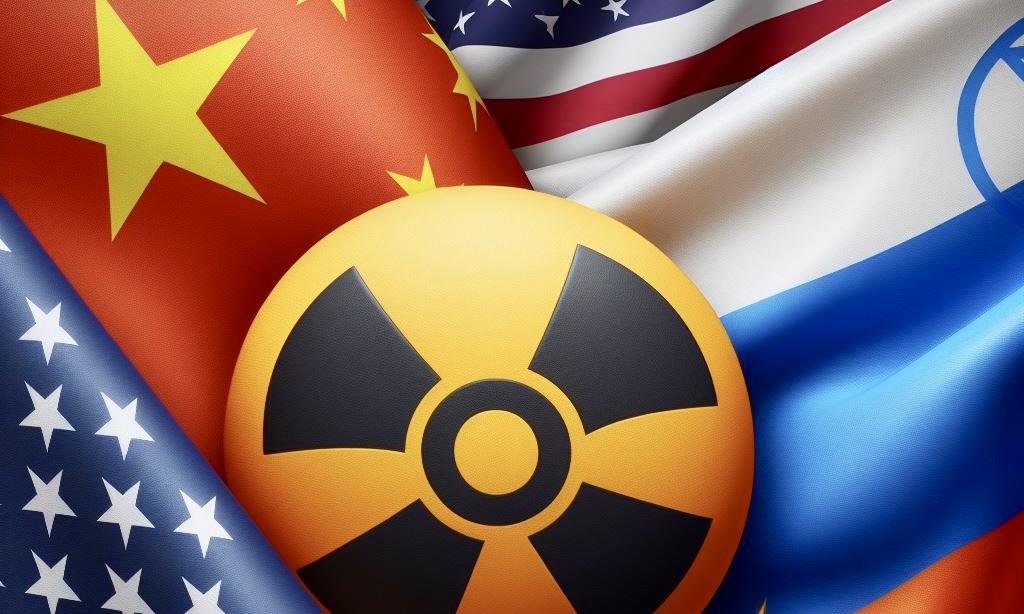Paul Dean, a senior U.S. arms control official, emphasized the critical need for China and Russia to join the U.S. in declaring that humans will always decide on the deployment of nuclear weapons, not artificial intelligence (AI).
US, France, and Britain Stand United on Nuclear Control
As reported by Reuters on Thursday, China and Russia are implored to follow the lead of the United States and others in stating that decisions regarding the deployment of nuclear weapons would never be made by artificial intelligence but by humans.
During an online briefing, Paul Dean, an arms control official for the State Department, stated that Washington, together with France and Britain, had made a "clear and strong commitment" that humans had complete control over nuclear weapons.
Dean, principal deputy assistant secretary of the Bureau of Arms Control, Deterrence, and Stability, stated, "We would welcome a similar statement by China and the Russian Federation."
"We think it is an extremely important norm of responsible behavior and we think it is something that would be very welcome in a P5 context," he stated, alluding to the five permanent members of the U.N. Security Council.
Dean's comments coincide with efforts by U.S. President Joe Biden's administration to expand bilateral talks with China on the development of artificial intelligence and nuclear weapons policy.
The Chinese Ministry of Defense did not immediately answer a request for comment.
Blinken and Wang Yi's Talks Set Stage for AI Dialogue
During broad talks in Beijing on April 26, U.S. Secretary of State Antony Blinken and China's Foreign Minister Wang Yi talked about the growth of AI technology.
Blinken stated that in the coming weeks, the two parties will conduct their first bilateral discussions on artificial intelligence, during which they will exchange perspectives on managing the technology's associated risks and ensuring its safety.
Although formal arms control negotiations are not anticipated to happen anytime soon, U.S. and Chinese officials began discussing nuclear weapons in January as part of normalizing military relations.
Photo: Microsoft Bing



 Trump Orders Federal Agencies to Halt Use of Anthropic AI Technology
Trump Orders Federal Agencies to Halt Use of Anthropic AI Technology  Samsung and SK Hynix Shares Hit Record Highs as Nvidia Earnings Boost AI Chip Demand
Samsung and SK Hynix Shares Hit Record Highs as Nvidia Earnings Boost AI Chip Demand  Germany and China Reaffirm Open Trade and Strategic Partnership in Landmark Beijing Visit
Germany and China Reaffirm Open Trade and Strategic Partnership in Landmark Beijing Visit  Amazon’s $50B OpenAI Investment Tied to AGI Milestone and IPO Plans
Amazon’s $50B OpenAI Investment Tied to AGI Milestone and IPO Plans  Iran Supreme Leader Ayatollah Ali Khamenei Killed in Israeli, U.S. Strikes: Reuters
Iran Supreme Leader Ayatollah Ali Khamenei Killed in Israeli, U.S. Strikes: Reuters  Russia Signals Openness to U.S. Security Guarantees for Ukraine at Geneva Peace Talks
Russia Signals Openness to U.S. Security Guarantees for Ukraine at Geneva Peace Talks  Pentagon Leaders Monitor U.S. Iran Operation from Mar-a-Lago
Pentagon Leaders Monitor U.S. Iran Operation from Mar-a-Lago  Coupang Reports Q4 Loss After Data Breach, Revenue Misses Estimates
Coupang Reports Q4 Loss After Data Breach, Revenue Misses Estimates  Hyundai Motor Plans Multibillion-Dollar Investment in Robotics, AI and Hydrogen in South Korea
Hyundai Motor Plans Multibillion-Dollar Investment in Robotics, AI and Hydrogen in South Korea  Microsoft Gaming Leadership Overhaul: Phil Spencer Retires, Asha Sharma Named New Xbox CEO
Microsoft Gaming Leadership Overhaul: Phil Spencer Retires, Asha Sharma Named New Xbox CEO  OpenAI Faces Scrutiny After Banning ChatGPT Account of Tumbler Ridge Shooting Suspect
OpenAI Faces Scrutiny After Banning ChatGPT Account of Tumbler Ridge Shooting Suspect  Israel Declares State of Emergency as Iran Launches Missile Attacks
Israel Declares State of Emergency as Iran Launches Missile Attacks  Meta Signs Multi-Billion Dollar AI Chip Deal With Google to Power Next-Gen AI Models
Meta Signs Multi-Billion Dollar AI Chip Deal With Google to Power Next-Gen AI Models  Synopsys Q2 Revenue Forecast Misses Expectations Amid China Export Curbs and AI Shift
Synopsys Q2 Revenue Forecast Misses Expectations Amid China Export Curbs and AI Shift  Anthropic Refuses Pentagon Request to Remove AI Safeguards Amid Defense Contract Dispute
Anthropic Refuses Pentagon Request to Remove AI Safeguards Amid Defense Contract Dispute  HHS Adds New Members to Vaccine Advisory Panel Amid Legal and Market Uncertainty
HHS Adds New Members to Vaccine Advisory Panel Amid Legal and Market Uncertainty 































